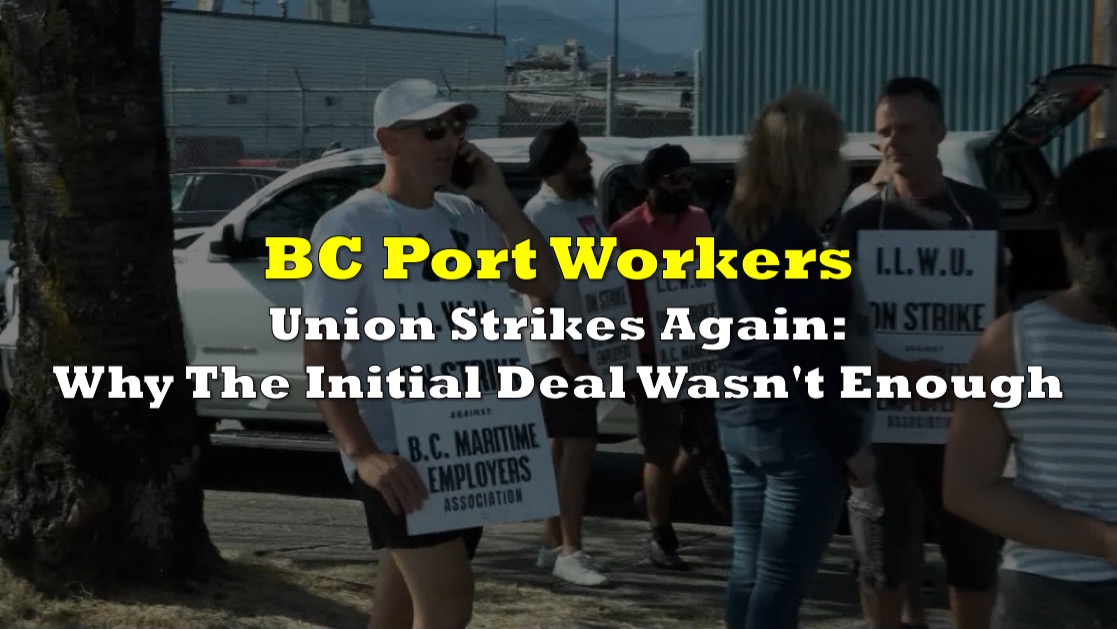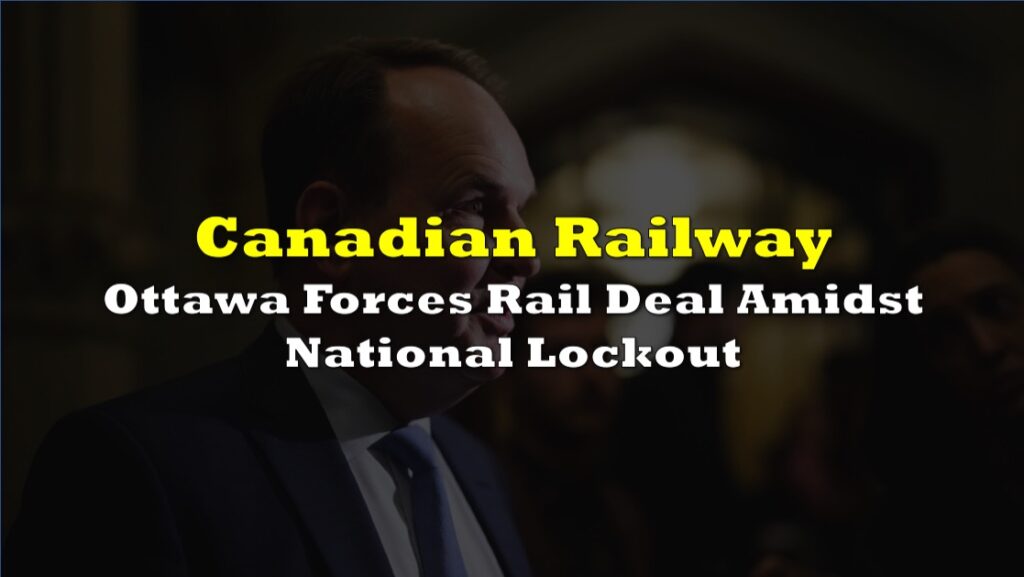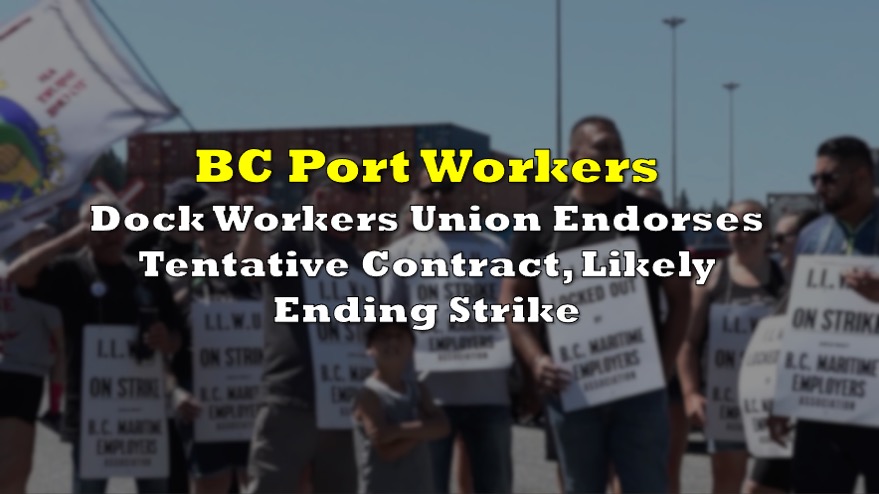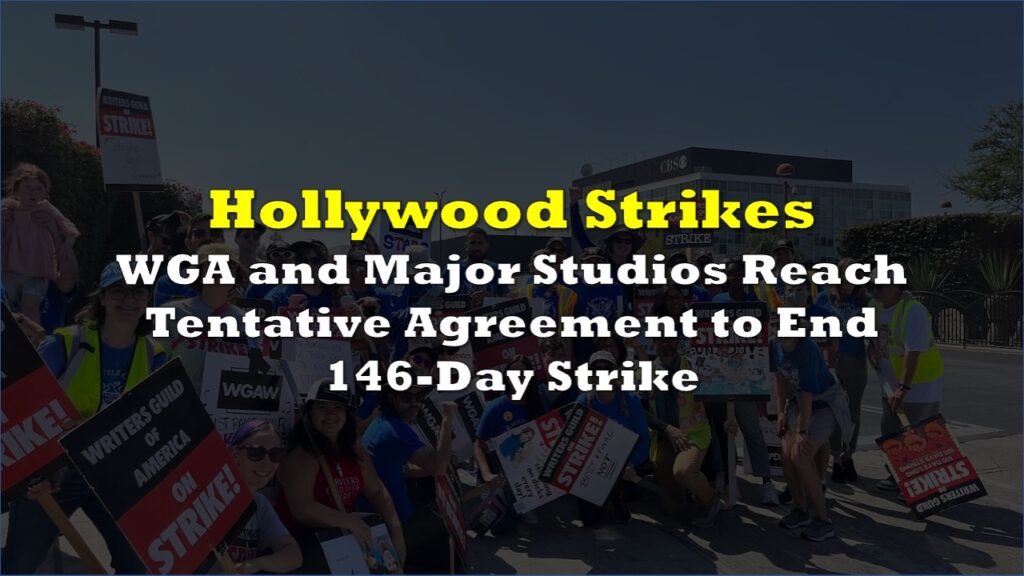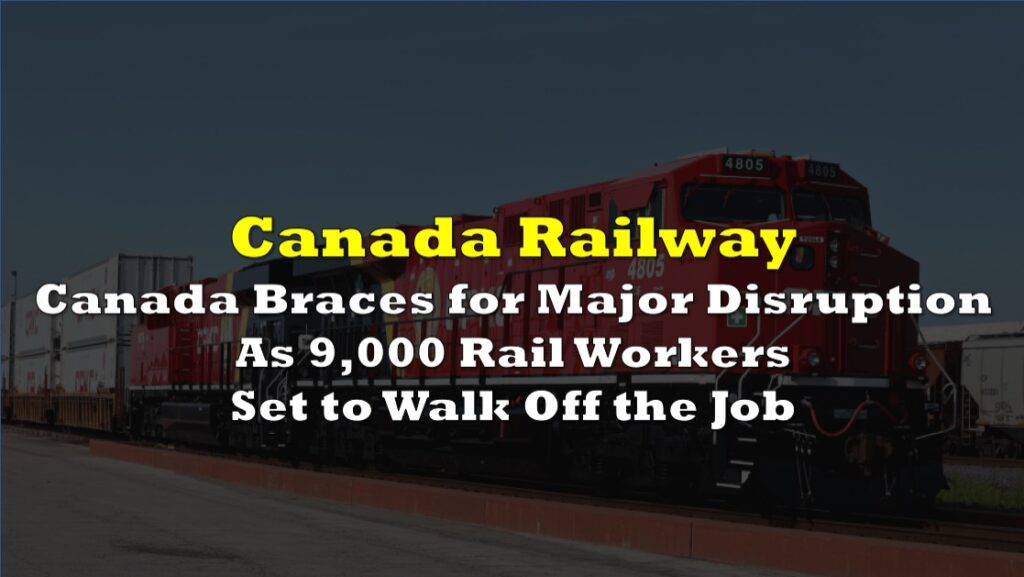Port workers affiliated with the International Longshore Workers Union (ILWU) Canada returned to the picket line late Tuesday after the union’s internal caucus dismissed the mediated agreement.
In a statement, the ILWU Canada Longshore Caucus expressed its lack of confidence in the recommendations, stating that they failed to safeguard their present and future employment prospects.
“The ILWU Canada Longshore Caucus does not believe the recommendations had the ability to protect our jobs now or into the future,” the union said in a statement.
Hearing members of Longshoreman’s union HAVE NOT not ratified agreement with port. Set to strike at 4:30 pm. No 72 hour strike notice given. Hearing some employees relocating so they don’t get stuck behind picket lines. #bcpoli #vanpoli #cdnpoli
— Jas Johal (@JasJohalBC) July 18, 2023
Since Canada Day, over 7,000 port workers have been engaged in job action, leading to the closure of all B.C. ports. On July 12, a senior federal mediator was appointed to propose the terms of settlement, which the union and the BC Maritime Employers Association (BCMEA) had 24 hours to accept or reject.
Both parties initially agreed to a tentative four-year deal on July 13, effectively ending a 13-day shutdown that affected more than 30 ports in B.C. The BCMEA had already ratified the agreement on July 13. The mediated four-year collective agreement included significant wage and benefit increases and addressed the union’s concerns regarding outside contracting and worker retention.
However, on July 17, the union’s caucus voted against accepting the mediator’s recommended settlement terms. Union president Rob Ashton expressed that given the uncertain times faced by the industry, a four-year agreement was too long, and the financial market uncertainties needed to be addressed for the well-being of their members.
“With the record profits that the BCMEA’s member companies have earned over the last few years the employers have not addressed the cost of living issues that our workers have faced over the last couple of years as all workers have,” the ILWU added.
Federal Labour Minister Seamus O’Regan expressed his disappointment, noting that the BCMEA had formally notified him of their membership’s full acceptance of the mediated deal. However, O’Regan also stated that despite initially agreeing to recommend the terms of settlement, the leadership of ILWU Canada decided against endorsing the terms to their members.
“We have been patient. Canadians have been patient. Every effort has been made. But this cannot go on,” he tweeted.
In a joint statement with Minister of Transportation Omar Alghabra, O’Regan emphasized that the proposed deal was the result of a constructive and substantive collective bargaining process. They expressed concern over further disruptions and pledged to explore all available options to ensure the smooth operation of ports.
We have been patient.
— Seamus O'Regan Jr (@SeamusORegan) July 19, 2023
Canadians have been patient.
Every effort has been made.
But this cannot go on.
Statement from Minister Alghabra and me: pic.twitter.com/mVdbyLjEKA
Meanwhile, Leader of the Opposition Pierre Poilievre blamed O’Regan’s “colossal incompetence”.
What colossal incompetence by Trudeau’s Labour Minister. He claimed he’d gotten a deal to end the strike, and now it’s back on with massive costs to consumers, workers & businesses.
— Pierre Poilievre (@PierrePoilievre) July 18, 2023
We can’t afford this incompetence.
BCMEA, in a media release, accused the ILWU leadership of rejecting the “mediator’s fair and balanced tentative deal” without conducting a member vote, thereby jeopardizing livelihoods and the Canadian economy.
Upon the strike’s resumption, picketing workers returned to the BCMEA dispatch office near the Port of Vancouver, voicing their determination through chants such as “An injury to one, an injury to all” and “one day longer, one day stronger.”
The Greater Vancouver Board of Trade President, Bridgitte Anderson, expressed disappointment and concern over the strike’s continuation, emphasizing the potential negative impacts on Canada’s reputation as a reliable trade partner. The strike had already caused shortages, temporary layoffs, and complete shutdowns within just two weeks, affecting businesses across the country.
The strike had halted the flow of goods along the B.C. coast, including at Vancouver, Canada’s busiest port. Industry groups estimated that the strike had resulted in billions of dollars in trade disruptions and temporary layoffs at facilities in Prince George and Saskatchewan.
While industry groups and Alberta Premier Danielle Smith called for Parliament to reconvene and enact back-to-work legislation during the initial 13-day strike, O’Regan and the federal government stood firm in their belief that the best resolutions are achieved through negotiations at the bargaining table.
While the strike resumption is a setback, Federal NDP transport critic Taylor Bachrach stated that it is within a union’s bargaining rights to reject an agreement, and negotiations should continue without the threat of legislated resolution. Bachrach urged the federal government to support the collective bargaining process rather than resorting to frequent back-to-work legislation imposed by previous Liberal and Conservative governments.
A recent study, commissioned by the union, supports the workers’ argument that labor is not to blame for the industry’s escalating expenses. According to Economist Jim Stanford, director of Vancouver’s Centre for Future Work, longshore workers’ hourly wages are comparable to those of other skilled industrial jobs. However, the current dispatch system leaves these workers with insecure schedules and forces them to wait several years to qualify for benefits.
The study also reveals that wages in the sector have not kept pace with British Columbia’s rising cost of living. In fact, the real purchasing power of longshore wages has fallen by 2.5% since 2017.
“Clearly, labour is not the source of rising costs in marine shipping, and the resulting inflation,” said Stanford.
Information for this briefing was found via CFI, CP24, and the sources mentioned. The author has no securities or affiliations related to this organization. Not a recommendation to buy or sell. Always do additional research and consult a professional before purchasing a security. The author holds no licenses.

